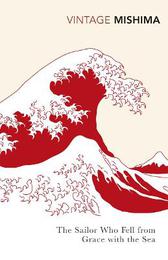
|
The Sailor who Fell from Grace with the Sea
Paperback / softback
Main Details
| Title |
The Sailor who Fell from Grace with the Sea
|
| Authors and Contributors |
By (author) Yukio Mishima
|
| Physical Properties |
| Format:Paperback / softback | | Pages:144 | | Dimensions(mm): Height 198,Width 129 |
|
| Category/Genre | Modern and contemporary fiction (post c 1945) |
|---|
| ISBN/Barcode |
9780099284796
|
| Classifications | Dewey:895.635 |
|---|
| Audience | |
|---|
|
Publishing Details |
| Publisher |
Vintage Publishing
|
| Imprint |
Vintage Classics
|
| Publication Date |
11 March 1999 |
| Publication Country |
United Kingdom
|
Description
'A major work of art' Time A band of savage thirteen-year-old boys reject the adult world as illusory, hypocritical, and sentimental, and train themselves in a brutal callousness they call 'objectivity'. When the mother of one of them begins an affair with a ship's officer, he and his friends idealise the man at first; but it is not long before they conclude that he is in fact soft and romantic. They regard this disallusionment as an act of betrayal on his part - and the retribution is deliberate and horrifying.
Author Biography
Yukio Mishima was born into a samurai family and imbued with the code of complete control over mind and body, and loyalty to the Emperor - the same code that produced the austerity and self-sacrifice of Zen. He wrote countless stories and thirty-three plays, in some of which he performed. Several films have been made from his novels, including The Sound of Waves, Enjo which was based on The Temple of the Golden Pavilion and The Sailor Who Fell From Grace with the Sea. Among his other works are the novels Confessions of a Mask and Thirst for Love and the short story collections Death in Midsummer and Acts of Worship. The Sea of Fertility tetralogy, however, is his masterpiece. After Mishima conceived the idea of The Sea of Fertility in 1964, he frequently said he would die when it was completed. On 25 November 1970, the day he completed The Decay of the Angel, the last novel of the cycle, Mishima committed seppuku (ritual suicide) at the age of forty-five.
ReviewsMishima's greatest novel, and one of the greatest of the past century * The Times * Explores the viciousness that lies beneath what we imagine to be innocence * Independent * Told with Mishima's fierce attention to naturalistic detail, the grisly tale becomes painfully convincing and yields a richness of psychological and mythic truth * Sunday Times * Coolly exact with his characters and their honourable motives. His aim is to make the destruction of the sailor by his love seem as inevitable as the ocean * Guardian * Mishima's imagery is as artful as a Japanese flower arrangement * New York Times *
|